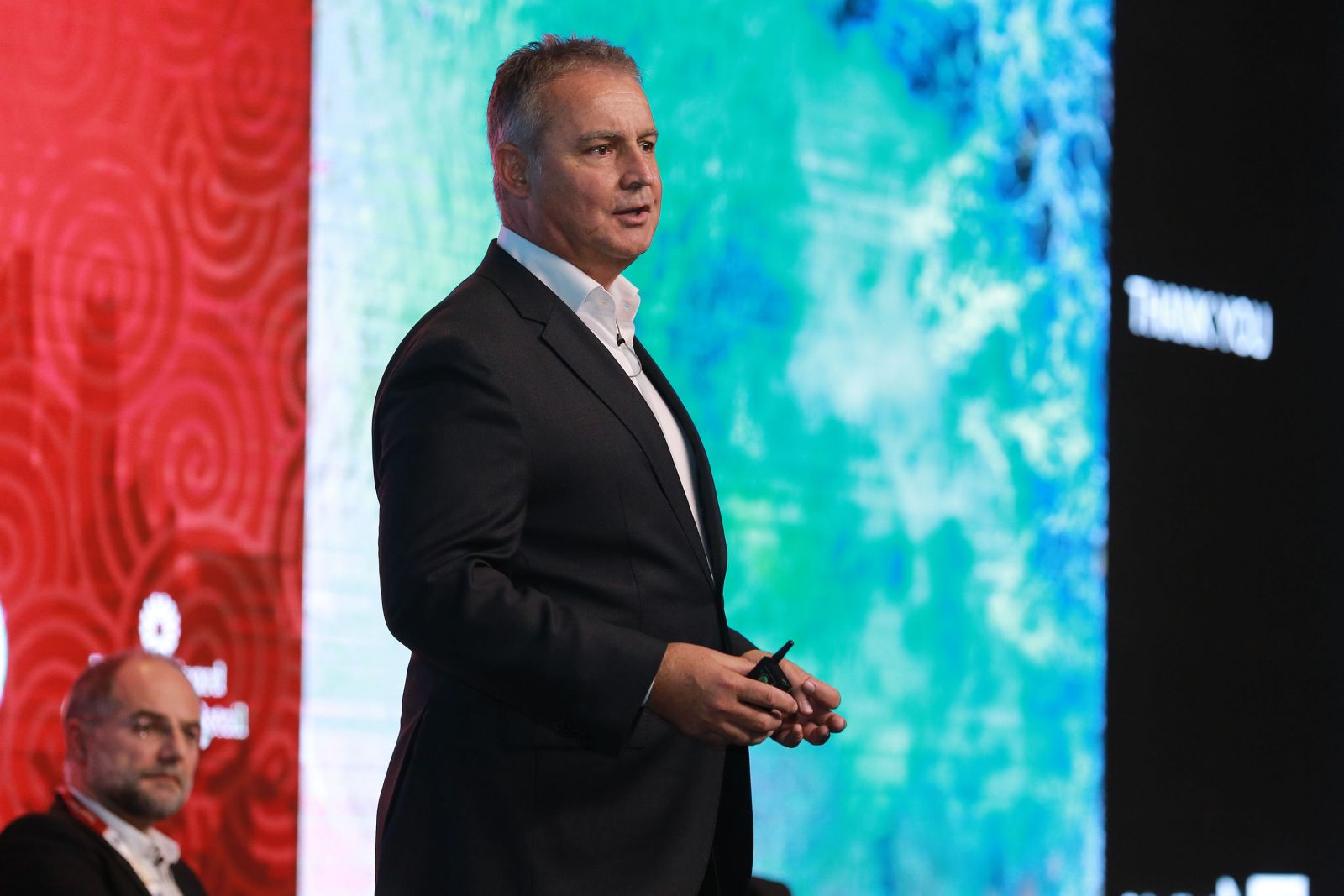The voice of the airports
Speakers from two leading international airport companies delivered some strong views on how to engage the consumer and on the industry business model, in one of the highlight sessions of day one.
The Trinity Forum 2018 was memorable for how open and candid many speakers were in their presentations, no easy task amid an audience of their peers. Two of the most compelling on day one came from Groupe ADP Customer Division Director Mathieu Daubert and Sydney Airport General Manager, Retail Glyn Williams.

Groupe ADP Customer Division Director Mathieu Daubert (left) and Sydney Airport General Manager, Retail Glyn Williams (right) were joined by moderator Dermot Davitt for a strong Q&A session.
Advertisement

“I keep hearing about innovation but what I'm not seeing is innovation in terms of tailoring or resetting the products so that we can grow at a far greater rate than now.”
- Sydney Airport General Manager, Retail Glyn Williams
Daubert asked pointedly: “Who is the customer today and how can we engage them?” He described the modern traveller as health-conscious, saying they are more educated and aware than ever before, and that they’re less convinced by duty free ‘bargains’. He noted that this change is an opportunity for other revenue channels, in particular food & beverage.
This doesn’t remove the appeal or the importance of travel retail, he noted. For Groupe ADP, said Daubert, this will continue to be a big focus. As price competition becomes less important, the plan is to focus on service, personalisation and experience.
To achieve this, Groupe ADP is moving away from a traditional store layout at its airports. Instead, spaces will be rearranged to reflect the traditional Parisian department store. He also outlined the hugely ambitious plans for Paris’ airports, with 40,000sq m of new commercial space coming into play in the next two years.

“There are different models out there. You may be unhappy with the one that exists today, but it's a commercial model that's been in place for a long time. The whole thing is ripe for disruption.”
- Sydney Airport General Manager, Retail Glyn Williams
Adding a fresh perspective was Sydney Airport’s Glyn Williams, who noted the important of experiences and service (a running theme of the conference), and who highlighted the exciting, design-led approach to retail that many airports have invested in across the world.
However, despite the many positives he sees in the industry, he also said that change is needed, and that the channel could easily attract competition from non-traditional players given high passenger growth rates and the strong potential consumer base.
“The top ten travel retailers account for around US$36 billion in annual sales. Why would someone not come in and say ‘I want a cut of that?’ For a domestic operator who is looking at tiny gross margin, does this represent a huge opportunity? They will think that this industry is absolutely ripe for disruption.”
He added: “In future you could see David Jones in Australia, or Sephora, or Lane Crawford in Hong Kong or Robinsons of Singapore becoming interested in beauty. They can create their own models that are part of their domestic branches.

“In spirits & wines, we have an operator in Australia called Dan Murphy and everyone goes to what they call Uncle Dan's to get their liquor on a Friday night. Now if they were to try to push into Sydney Airport in future, that’s like picking up six or seven stores in one go. And it would be pretty easy to do as they have already got the suppliers lined up. The same applies to technology or pharmacy.
“So there are different models out there. You may be unhappy with the one that exists today, but it's a commercial model that's been in place for a long time. The whole thing is ripe for disruption.”
He said that change could represent progress. First, he said, disruption can be positive in terms of brands. Wellness, tech, niche and local brands should have more of a presence in the market, he argued.
Secondly, he suggested the industry reconsider how it sells to customers and the limits placed on it. Why be limited to three bottles of alcohol when – potentially – it’s possible to sell customers a case and have it shipped to them at home?
He concluded: “One of our key issues when we start talking about the model is that we don’t always focus on the opportunity. If you focus on the negative, you won't actually see into the future and see these opportunities.
“I keep hearing about innovation and I've seen some wonderful innovation in design, but what I'm not seeing is innovation in terms of tailoring or resetting the products so that we can grow at a far greater rate than now. The rest of it is, to me, 'BAU' – Businesses As Usual innovation. I think that's where the next reset comes. To me that means taking our product off-airport, straight to the customer.”

The Moodie Davitt e-Zine | Issue 252 | 16 November 2018